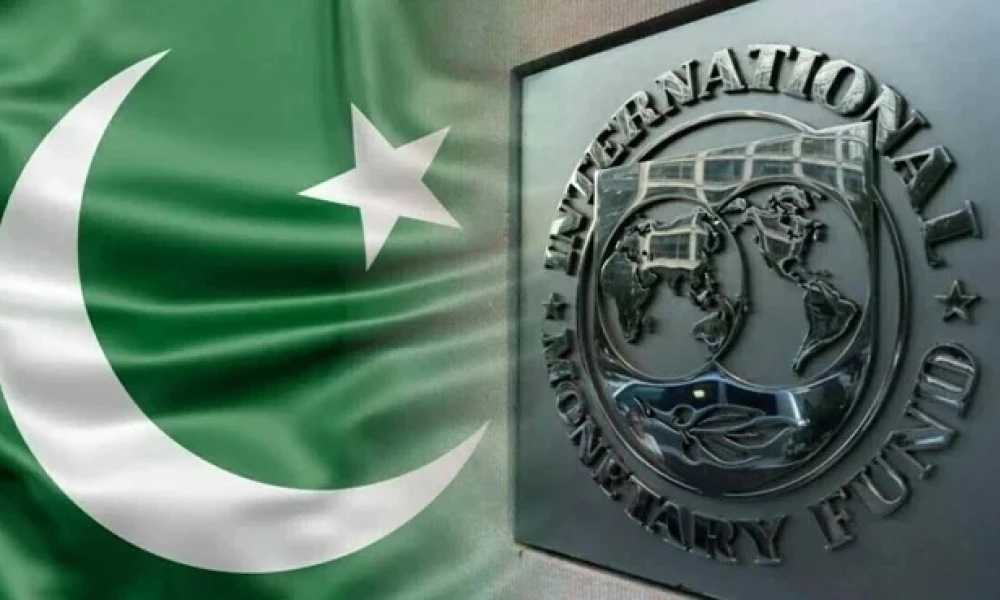Islamabad: As Pakistan prepares to receive an International Monetary Fund (IMF) delegation on May 14 for critical discussions regarding the upcoming federal budget, the government is considering a range of tax reforms aimed at increasing revenue and aligning with IMF expectations.
Among the most significant proposals under review is a hike in the withholding tax imposed on e-commerce businesses.
The Federal Board of Revenue (FBR) is evaluating options to raise the current 0.25% withholding tax applied to platforms such as Daraz.pk, OLX.com.pk, PakWheels.com, and Zameen.com.
This move is in response to IMF pressure for Pakistan to broaden its tax base and improve the tax-to-GDP ratio, which the Fund wants to see closer to 11%.
The increased tax would apply to online platforms classified under Section 2(38B) of the Income Tax Ordinance, which includes digital businesses that enable transactions between buyers and sellers.
Presently, the FBR collects this tax in the Islamabad Capital Territory, while provincial authorities impose separate service taxes.
These new tax measures are set to be presented to Prime Minister Shehbaz Sharif on May 15 and come just weeks ahead of the federal budget’s expected announcement in Parliament on June 2.
In addition to the proposed increase in e-commerce taxation, the FBR is also looking to address other key fiscal areas.
Notably, a phased removal of the controversial 10% super tax on major industrial sectors is being proposed.
Banking, Oil, Tobacco
This levy has significantly raised the effective corporate tax rate, particularly in sectors such as cement, banking, oil, and tobacco, where the rate has soared up to 39%.
Officials believe that eliminating this tax gradually could help restore investor confidence and unlock approximately PKR 200 billion currently entangled in legal proceedings related to tax disputes.
On the income tax front, the FBR is planning to provide relief to the salaried class by raising the monthly income tax exemption threshold from PKR 50,000 to PKR 80,000.
This adjustment would exempt annual incomes of up to PKR 960,000 from taxation, offering relief to middle-income earners.
Furthermore, discussions are underway to eliminate the 10% surcharge currently levied on monthly incomes exceeding PKR 10 million, a move that would benefit high earners.
However, not all proposed measures are likely to be welcomed. A particularly controversial idea being explored is the introduction of a 5% income tax on pensions.
This suggestion has already drawn criticism from retired government employees and public sector unions, who argue that taxing pensioners—many of whom live on fixed incomes—would be unfair and could provoke social unrest.
Meanwhile, the government appears ready to introduce incentives for the industrial and real estate sectors in a bid to support economic recovery.
Among the measures under review is the removal of withholding taxes on the import of raw materials used in manufacturing and construction, which could reduce costs for local producers.
Property Sector
In the property market, the FBR is also considering lowering transaction taxes to stimulate activity in the real estate sector, which has been sluggish in recent years.
While imported vehicles might benefit from reduced duties, domestically produced cars with engine capacities above 1300cc could face higher taxation.
This approach seems designed to strike a balance between encouraging industrial activity and managing luxury consumption.
In line with efforts to increase tax compliance, the government is also developing a centralized digital invoicing system for manufacturers and retailers.
This would serve as a key tool in reducing tax evasion and improving oversight.
Additionally, the FBR plans to transition away from a trader-friendly fixed tax scheme and move toward a more targeted approach, offering tailored support to small and medium-sized enterprises (SMEs) based on their size and industry.
Read More: IMF Mission to Visit Pakistan Next Week for $1.5 Billion Climate Financing Talks
This change reflects a broader strategy to formalize the economy and ensure that revenue collection is more equitable and efficient.
Despite these sweeping proposals, senior officials acknowledge that achieving the current fiscal year’s revenue target of PKR 12.3 trillion remains a formidable challenge.
As such, the upcoming negotiations with the IMF are expected to focus on how Pakistan intends to bridge this gap, with future financial assistance likely tied to the government’s ability to implement credible and sustainable reforms.
In summary, Pakistan’s upcoming budget is shaping up to be a balancing act between meeting IMF conditions and addressing domestic political and economic needs.
While efforts to support industry and provide relief to wage earners may foster economic stability, proposals such as taxing pensioners and raising e-commerce taxes could generate resistance.
Also Read: IMF Mission Talks on Judicial Efficiency, Property Rights Protection With SCBAP
Policymakers are banking on a combination of tax reforms and sectoral incentives to revitalize the economy and restore confidence at a critical juncture.









